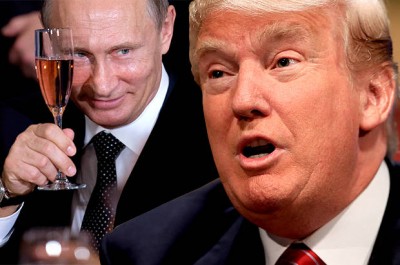What The Russian Hacking Report DOESN’T Say

Today, the Department of Homeland Security and FBI released a report alleging Russian hacking.
It’s important to note what the report does NOT say …
It does NOT allege any of the following:
- It doesn’t claim that it’s accurate. Instead, the report starts with a disclaimer, and uses the same type of weasel words – “as is”, “does not provide any warranties of any kind regarding any information” – that someone selling a lemon uses when he doesn’t want to talk about the fact that the blasted thing won’t run and doesn’t want to get sued for false misrepresentation:
- It doesn’t mention Wikileaks … not even once. In other words, the report does not allege that the Russians gave any Democratic Party or Podesta emails to Wikileaks
- It doesn’t address the fact that the NSA possesses records showing exactly how the emails went from the Democratic Party to Wikileaks, as it tracks all electronic communications in the U.S.
- It doesn’t address the fact that Russia would not have used widely known hacking methods (and wouldn’t have paid tribute within the code to a famous Russian intelligence officer), and that anyone could have copied these methods and names
- It doesn’t address the fact that top former NSA and CIA officials (and Wikileaks) says that these were not hacks at all … but rather leaks by American insiders
- It doesn’t address American intelligence services’ less-than-stellar history of truthfulness, and routinely skew intelligence to justify preordained policy outcomes
- It doesn’t address the fact that – according to the Los Angeles Times – the U.S. interfered in foreign elections 81 times between 1946 and 2000 … compared to only 36 times by the Ruskies
- It doesn’t address the fact that most Americans aren’t buying the whole claim that the Russians hacked our election
In other words, the report really doesn’t say much of anything …


